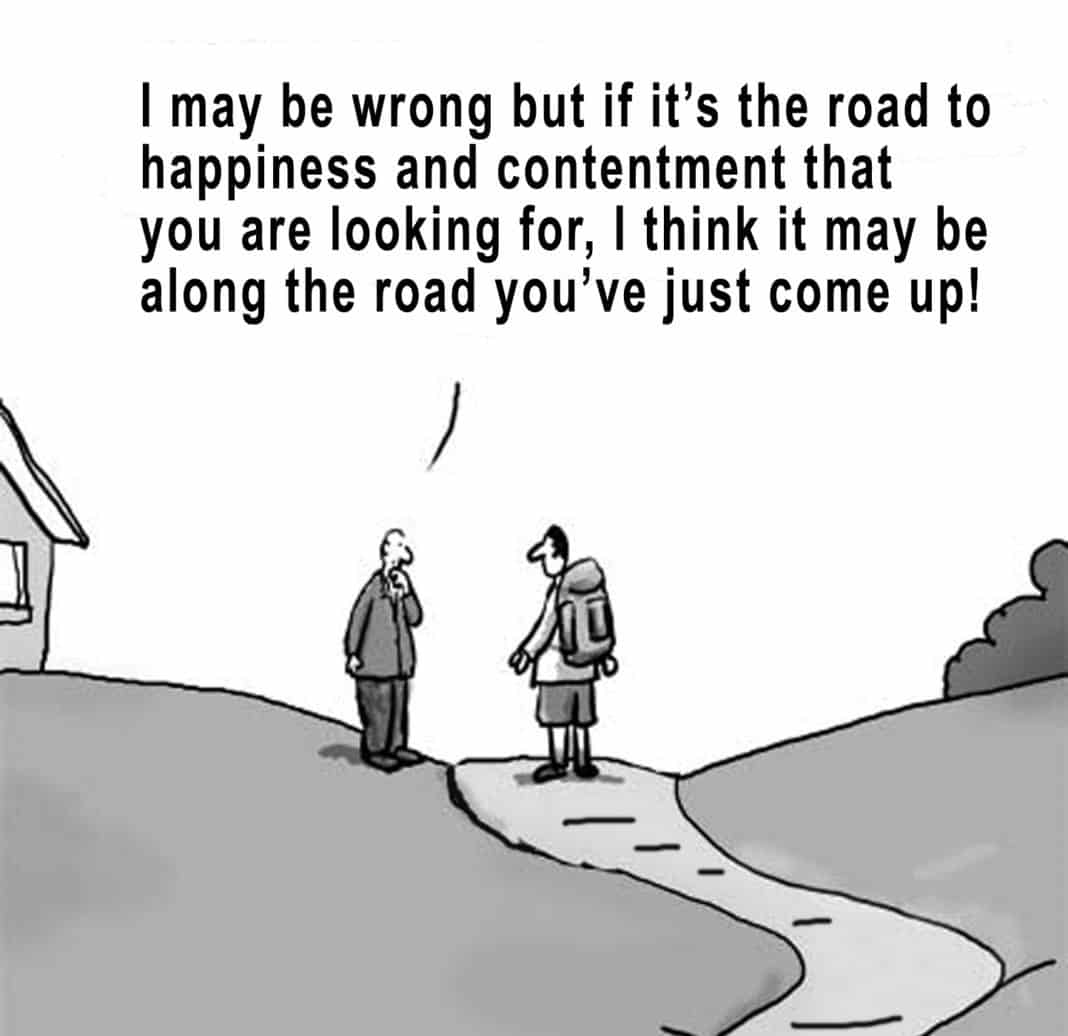We have, from time to time, written articles here on how to be happy. True happiness comes from inside and whilst we can pick up happy tips from other people, in truth we can only be as happy or as sad as we choose to be.
We have the power to make that decision to be happy. It is in the human condition to constantly search for happiness – and indeed, haven’t the Americans written ‘the pursuit of happiness’ into their constitution.
The place to start being happy is when the next person asks you, ‘how are things?’ Try saying ‘brilliant’ instead of ‘ah … middling’, and watch how that response will sow the seed of happiness for the rest of the day.
YCBS has occasionally stolen ideas for a column, but we can never be accused of plagiarism. Our literary offerings are by and large our own jaundiced take on the world around us. (Ah … Lads, let somebody else speak …please!)
But I came across an article on ‘the art of happiness’ this evening, and we are going to fill the remainder of this week’s space with excerpts from the piece. The interesting thing about this is that it was written 76 years ago; but when you read it, I’m sure that you will agree that it could have been written today.
William D Ogden, of the ‘New York Times’, sat down and wrote an editorial on the art of happiness and this appeared in his newspaper on 30th December 1945.
“We have a curious condition in the world today. There was never a time when so much official effort was being expended to produce happiness, and probably never a time when so little attention was being paid by the individual to creating the personal qualities that make for it …”
“What one misses most in the world today is the evidence of widespread personal determination to develop a character that will in itself make for happiness. The whole emphasis is on the reform of living conditions, on increased wages, or controls on the economic structure – and so little on people improving themselves.”
“The ingredients of happiness are so simple that they can be counted on one hand. First of all, happiness must be shared. Selfishness is the enemy; for to make another happy is to be happy one’s self. It is quite seldom found for long in big crowds, most easily found in moments of solitude and reflection. It comes from within, and rests most securely on simple goodness and clear conscience. Religion may not be essential to it, but no one is known to have gained it without a philosophy resting on ethical principles. “
“It cannot be bought; indeed money, strange as it may seem, has very little to do with it. It was Thomas Kempis who wisely said that ‘a modest competence sufficeth.”
“People are not happy unless they are reasonably happy with themselves, so that the quest for tranquillity must be of necessity begun with self-examination. We shall not often be content with what we discover in this scrutiny. There is much to do, and so little done. Upon this searching self-analysis, however; depends the discovery of those qualities that make each person unique, and whose development alone can bring satisfaction.”
“Of all those who have tried, down the ages, to outline a programme for happiness, few have succeeded as well as William Henry Channing, a clergyman who was chaplain to the United States Senate in the middle of the last century. He put it this way:
‘To live content with small means, to seek elegance rather than luxury, and refinement rather than fashion; to be worthy, not respectable, and wealthy, not rich; to study hard, think quietly, talk gently, act frankly; to listen to the stars and the birds, to babes and sages, with open heart; to bear all cheerfully, do all bravely, await occasion, hurry never; in a word, to let the spiritual, unbidden and unconscious, grow up through the common. This is my symphony.”
“It will be noted”, Ogden concluded, “that no government can do this for you; you must do it for yourself.”
And there you have it, dear readers. There is a lot of wisdom in those excerpts from that old editorial – so much so, that I thought it worth passing on as it is. Even if we all just take one signpost from Mr Ogden’s blueprint, we shall be all the better for doing so.
Don’t Forget
Happiness is discovering that the slip of paper underneath you windscreen wiper is only an advertisement.





